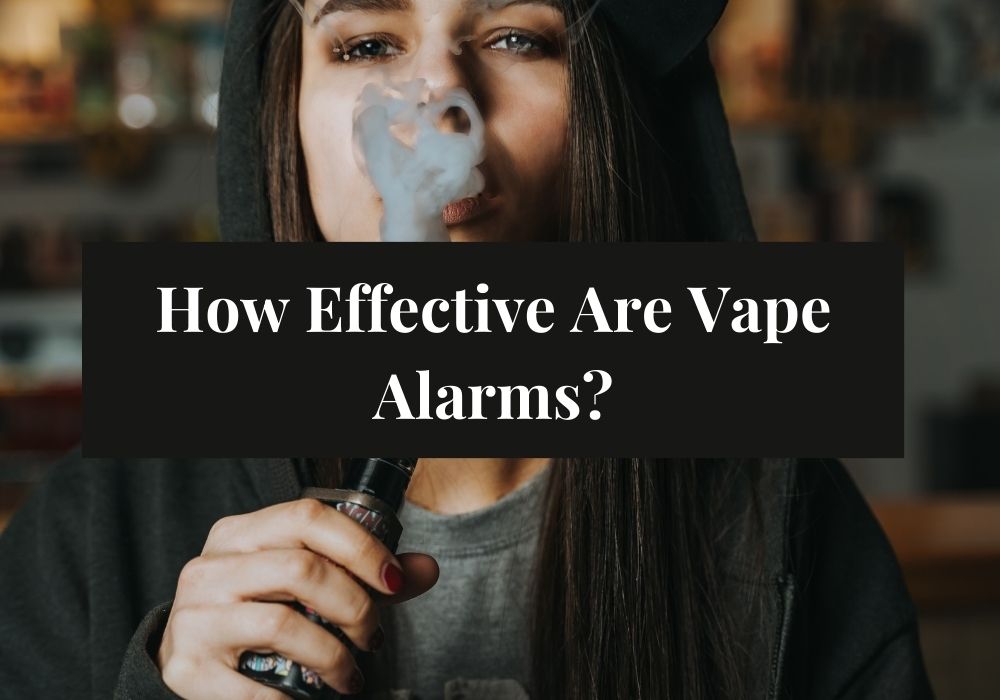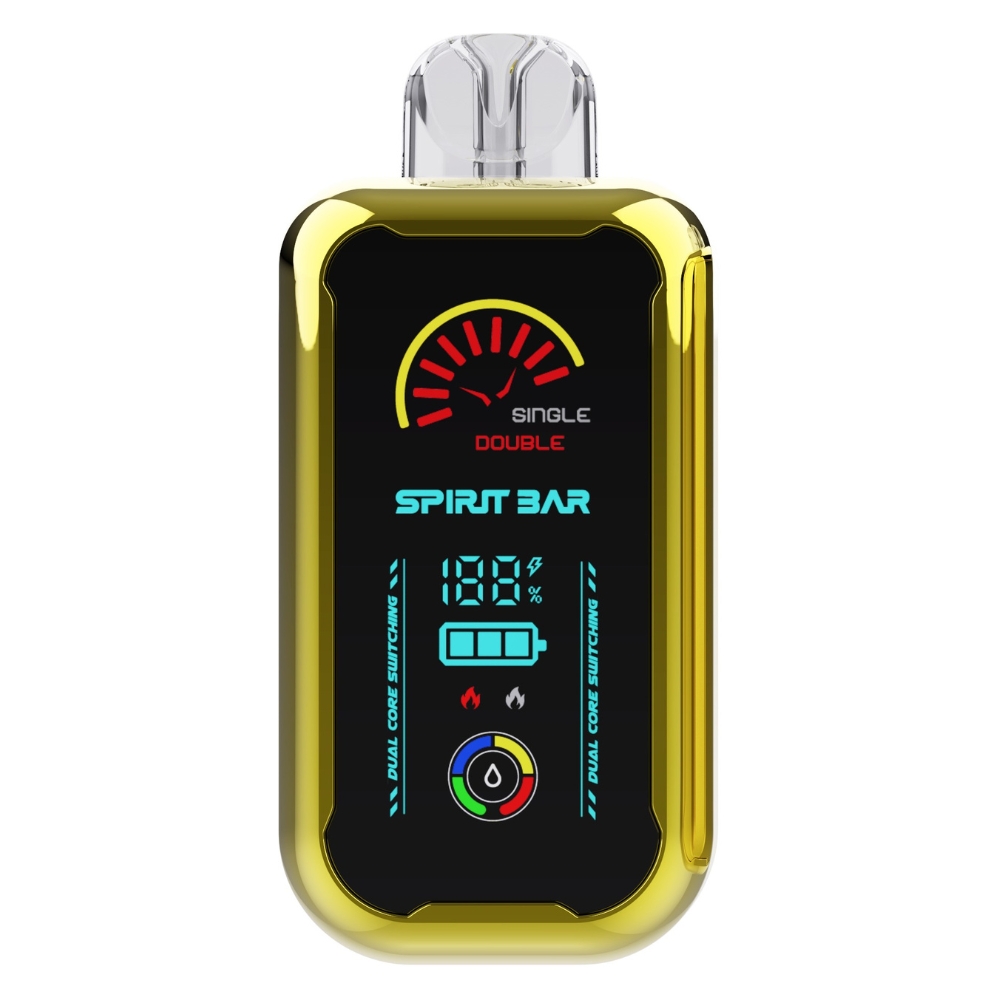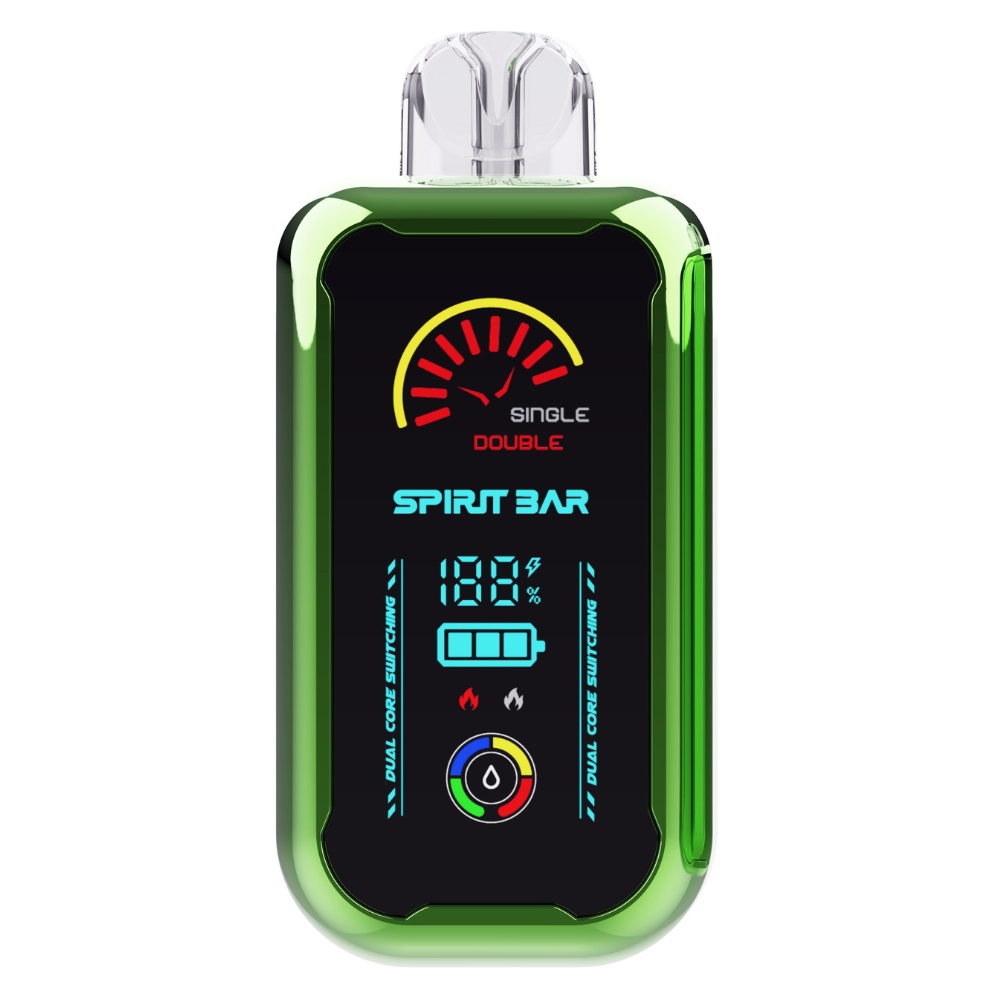How Effective Are Vape Alarms?

Are you curious about how effective vape alarms are? As vaping has become increasingly popular, schools, universities, and other public places have started to install vape detectors to discourage people from smoking or vaping in prohibited areas. These detectors are designed to detect vapor and alert the authorities when someone is vaping. But how effective are they?
According to a report by Vaping Daily, vape detectors have been effective in catching people smoking or vaping in prohibited areas. Some detectors use infrared sensors, metal oxide semiconductor sensors, and photoionization detectors to detect vapor. They can be standalone devices or integrated into other products, such as smoke alarms. In some cases, they can even conduct video surveillance, detect carbon monoxide, and record audio, making them a versatile tool for detecting unwanted behavior.
However, some people question the effectiveness of vape alarms. Wired reported that some teenagers have found ways to outsmart bathroom vape detectors by using plastic bags or blowing vapor into their sleeves. Additionally, some vape detectors may produce false alarms or fail to detect vapor if the concentration is too low. Despite these limitations, vape detectors remain a popular tool for discouraging smoking and vaping in public places.
Understanding Vape Alarms
If you’re a vaper, you may be wondering if your vaping habit could set off the smoke alarm in your home. While it’s true that smoke alarms are designed to detect smoke, not vapor, there are some instances where vaping could trigger a smoke alarm.
Firstly, it’s important to understand that there are two main types of smoke alarms: ionization and photoelectric. Ionization smoke alarms work by detecting small particles of smoke, while photoelectric smoke alarms use a beam of light to detect smoke particles.
Research conducted by various organizations, including the National Fire Protection Association (NFPA), has shown that vape aerosol particles are less likely to activate smoke alarms compared to smoke particles. However, it’s still possible for vaping to set off a smoke alarm, especially if you’re using an ionization smoke alarm.
It’s worth noting that the sensitivity of smoke detectors may differ based on the brand and model. Some smoke alarms may be more sensitive to vapor than others, so it’s important to check the manufacturer’s guidelines to see if they have any specific recommendations for vaping.
To minimize the risk of setting off a smoke alarm while vaping, you can try the following tips:
- Vape at lower temperatures, as higher temperatures can produce more vapor and increase the chances of triggering a smoke alarm.
- Blow the vapor out of a window or use a fan to help disperse the vapor.
- Keep your vaping device clean and well-maintained, as buildup of residue or debris can increase the amount of vapor produced.
- Consider using a photoelectric smoke alarm, which is less likely to be triggered by vaping.
By following these tips and understanding how smoke alarms work, you can continue to enjoy your vaping habit without worrying about setting off the smoke alarm.
Effectiveness of Vape Alarms
If you are looking for a way to discourage vaping in your school or workplace, vape detectors can be an effective solution. However, before investing in one, it’s important to consider the effectiveness of these alarms.
Alarm Sensitivity
One of the most important factors to consider when purchasing a vape detector is its sensitivity. A detector that is not sensitive enough may not detect vaping, while one that is too sensitive may trigger false alarms.
It’s important to find a balance between sensitivity and accuracy. Some detectors use a combination of sensors, including sound and air quality sensors, to detect vaping. These detectors may be more accurate than those that rely on only one type of sensor.
Battery Life
Another important factor to consider is the battery life of the detector. A detector with a short battery life may require frequent replacements, which can be inconvenient and costly.
Look for a detector with a long battery life that can last for months or even years without needing to be replaced. Some detectors may also have a low battery indicator, which can alert you when the battery is running low and needs to be replaced.
Ease of Use
Finally, consider the ease of use of the detector. A detector that is difficult to install or use may not be effective if it is not used properly.
Look for a detector that is easy to install and use, with clear instructions and user-friendly controls. Some detectors may also have a mobile app that allows you to monitor the detector remotely and receive alerts when vaping is detected.
Overall, vape detectors can be an effective way to discourage vaping in your school or workplace. Consider the sensitivity, battery life, and ease of use of the detector before making a purchase to ensure that it is effective and easy to use.
User Experiences
Vape detectors are becoming more common in schools and public places to discourage vaping and smoking. But how effective are they in detecting vape and stopping people from using e-cigarettes? Let’s take a look at some user experiences.
According to a study that analyzed social media posts related to vaping, some users reported that vape detectors have little impact on their behavior. They found ways to bypass the detectors, such as covering the sensor or blowing the vapor into a bag. However, other users reported that they were deterred from vaping in areas with vape detectors, as they didn’t want to risk getting caught.
One user on Twitter shared their experience with vape detectors in schools, saying that they are “not effective at all.” They claimed that students simply go to the bathroom with a friend and vape there, knowing that the detectors won’t pick up on it. However, another user on Twitter shared a different experience, saying that vape detectors in their workplace have been effective in reducing vaping.
It’s worth noting that the effectiveness of vape detectors can depend on several factors, such as the sensitivity of the sensors, the placement of the detectors, and the behavior of the users. Some detectors are more sensitive than others, and some are better at detecting certain types of e-cigarettes. Additionally, if the detectors are placed in areas where people are less likely to vape, such as outside or in well-lit areas, they may be less effective.
Overall, user experiences with vape detectors are mixed. While some users find them ineffective, others report that they have been successful in deterring vaping. The effectiveness of vape detectors may vary depending on the specific situation, so it’s important to consider all factors before investing in them.
Health Impacts of Vape Alarms
Vape alarms are becoming increasingly popular as a way to detect vaping in areas where it is prohibited. However, there are concerns about the potential health impacts of these alarms. Here are some things to consider:
False Alarms
One of the main concerns with vape alarms is the potential for false alarms. These alarms are designed to detect the particles in vapor, but they can also be triggered by other things, such as dust or aerosol sprays. False alarms can be annoying and disruptive, and they can also lead to complacency if people start to ignore the alarms when they go off.
Air Quality
Another concern with vape alarms is the effect they may have on air quality. Some alarms use sensors to detect particles in the air, which can lead to increased awareness of air quality issues. However, it is important to note that these sensors may not be able to detect all types of particles, and they may not be accurate in all environments.
Noise Pollution
Vape alarms can also contribute to noise pollution in certain environments. Loud alarms can be disruptive and annoying, and they may also contribute to stress and anxiety in some people. It is important to consider the impact of noise pollution on the people who are exposed to it, as well as the potential health impacts of prolonged exposure to loud noises.
Conclusion
Overall, there are concerns about the potential health impacts of vape alarms. While these alarms can be effective in detecting vaping in prohibited areas, they may also contribute to false alarms, air quality issues, and noise pollution. It is important to consider these factors when deciding whether or not to use vape alarms in a particular environment.
Legal and Regulatory Aspects
When it comes to vape alarms, there are several legal and regulatory aspects to consider. The use of e-cigarettes and vaping devices is regulated by the U.S. Food and Drug Administration (FDA), and there are a number of federal and state laws that govern their use.
One of the most important regulations is the Tobacco Control Act, which gives the FDA the authority to regulate the manufacturing, distribution, and marketing of tobacco products, including e-cigarettes and vaping devices. The Act requires manufacturers to register their products with the FDA and provide information about their ingredients and manufacturing processes.
In addition to federal regulations, many states and municipalities have their own laws regulating the use of e-cigarettes and vaping devices. For example, some states have banned the use of e-cigarettes in public places, while others have imposed age restrictions on their purchase and use.
If you are considering installing a vape alarm, it is important to check the relevant laws and regulations in your area to ensure that you are complying with all applicable requirements. Failure to comply with these regulations could result in fines or other penalties.
Overall, it is important to be aware of the legal and regulatory aspects of vaping and to ensure that you are complying with all applicable laws and regulations. By doing so, you can help ensure that you are using these products safely and responsibly.
Vape Alarms in Public Spaces
If you are a business owner or manager of a public space, you may be wondering how effective vape alarms are in detecting and preventing vaping on your premises. Vape alarms, also known as vape detectors, are devices designed to detect the presence of vapor in the air and alert security personnel or management to potential vaping activity.
Vape alarms are becoming increasingly popular in public spaces such as schools, hospitals, and office buildings. They are designed to help prevent vaping, which can be a health hazard and a nuisance to others. However, like any technology, vape alarms are not foolproof, and their effectiveness can depend on several factors.
One factor that can affect the effectiveness of vape alarms is the quality of the device itself. Some vape alarms are more sensitive than others and can detect even small amounts of vapor, while others may be less reliable. It is important to choose a high-quality vape alarm that is specifically designed for the size and layout of your public space.
Another factor that can affect the effectiveness of vape alarms is the location of the device. Vape alarms should be placed in areas where vaping is most likely to occur, such as bathrooms or other secluded areas. Additionally, vape alarms should be installed in areas where they are less likely to be tampered with or disabled, such as high on walls or ceilings.
Finally, the effectiveness of vape alarms can depend on the policies and procedures in place to respond to alerts. If a vape alarm goes off, it is important to have a plan in place to investigate and address the situation. This may involve notifying security personnel or management, conducting a search of the area, or taking disciplinary action against individuals caught vaping.
Overall, vape alarms can be an effective tool for preventing vaping in public spaces, but their effectiveness depends on several factors. By choosing a high-quality device, placing it in the right location, and having appropriate policies and procedures in place, you can help ensure that your public space remains free of vaping activity.
Alternatives to Vape Alarms
While vape alarms are becoming more common in public places, you may be wondering if there are any alternatives to detect vaping. Here are a few options to consider:
Vape Detectors
Similar to smoke detectors, vape detectors are designed to detect vaping-related aerosols and emissions in confined spaces. These detectors work by identifying changes in air quality and signaling the presence of vape smoke. Some models can detect audio keywords and monitor air quality, making them ideal for detecting tobacco smoke and e-cigarette vapor. However, they can also detect carbon monoxide, shouting, and gunshots, which may not be relevant in all settings.
Air Purifiers
Air purifiers are another option to consider. They work by filtering the air and removing particles, including smoke and vapor. Some models are specifically designed to remove cigarette smoke and may be effective in removing vape smoke as well. However, air purifiers can be expensive and may not be practical in all settings.
Education and Communication
One of the most effective ways to prevent vaping in public places is through education and communication. Clear signage and messaging can help inform people of the rules and consequences of vaping in certain areas. Additionally, educating people on the dangers of vaping and the potential health risks can help discourage vaping altogether.
Enforcement
Finally, enforcement of vaping policies can be an effective way to prevent vaping in public places. This can include fines or other consequences for those caught vaping in prohibited areas. However, it is important to ensure that enforcement is consistent and fair to avoid any potential backlash or negative consequences.
While vape alarms may be effective in some settings, there are several alternatives to consider. Whether through the use of vape detectors, air purifiers, education and communication, or enforcement, there are options available to help prevent vaping in public places.








